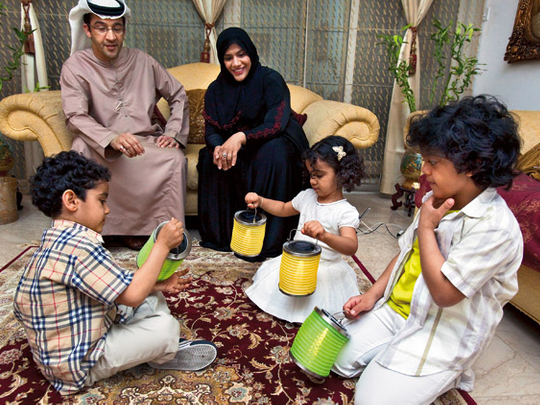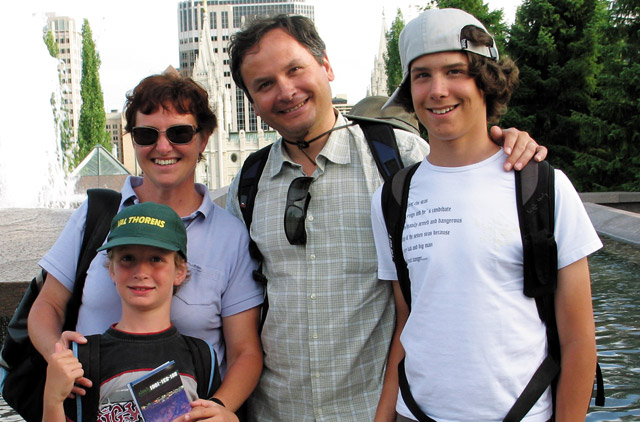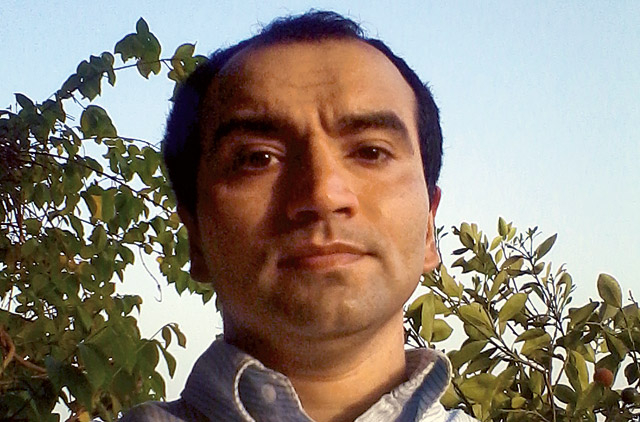
With the world population touching the 7 billion mark, it's time to ask the eco warrior in each one of us to emerge and play a role in saving the planet from the consequences of our conspicuous consumption.
A recent initiative by National Geographic is doing just that - appealing to the eco warrior in each of us. In collaboration with Shell, Nat Geo international launched a three-year energy challenge initiative across the world on January 25 this year. This initiative has been launched to help people understand the world's energy situation and the crisis we are undergoing.
Headed by a renowned biologist and Nat Geo fellow, Thomas Lovejoy, the Challenge involves a panel of experts who study various energy issues and provide support to projects that are based on innovative energy solutions.
Interested people can log on to http://on.natgeo.com/9lODXD so they can take advantage of interactive energy features such as cutting-edge personal energy meters, find energy initiatives from around the world, learn how to trim their energy requirements and achieve their ideal energy weight.
The section on trimming energy weight was launched worldwide as an interactive project called the 360˚Energy Diet (ED) Challenge and will be concluded in the middle of this month.
Trimming the energy ‘fat'
The ED Challenge is about encouraging individuals and families to reduce their energy needs and adopt a new lifestyle that is entirely eco-sustainable. Christina Nunez, senior producer, energy content, at NatGeo's Washington DC headquarters and one of the participants in the Challenge, says this will be an ongoing feature throughout the year. In the future they are planning to launch several similar initiatives to encourage people to reduce their carbon footprints.
Entries from six households and three individuals from around the world were selected for the Challenge. The families are: the Zupan family from Slovenia, the Shaw family from the US, the Ito family from Japan, the Malik family from India, the Al Nowais family from the UAE and a family from Mexico. The three individuals who participated in the Challenge are: Christina Nunez, Lindsay from Canada and Omar Samra from Egypt.
During the period of the Challenge, participants tried to drop as much excess "weight" as they could by making measurable changes in six areas of their lives: home efficiency, transportation, shop purchases, water use, waste reduction and general lifestyle. National Geographic provided virtual coaches - experts in various aspects of conserving energy - to help the participants during their "diet".
Mohammad Al Hammadi, editor-in-chief of National Geographic Al Arabiya, who coordinated for the UAE, elaborates on the challenge: "Each family worldwide was chosen based on their existing knowledge of environmental concerns and sustainability, as well as their previous experience with energy-saving activities. We also took into consideration their enthusiasm and willingness to be involved in the project and to fulfil the requirements of the competition - such as accomplishing the daily tasks and blog updates.
"In the UAE we received numerous entries, but Mohammad Al Sayed Ali Al Nowais and his family were the perfect fit as they met the criteria and are doing an excellent job. We are extremely excited to have them involved, and to watch and learn from their progress."
Monitoring the progress
Throughout the competition, all the tasks and challenges undertaken by the families are being overseen by an international group of environmental "coaches", who offer guidance and feedback to help the participants on their journey and to monitor the results.
These coaches include Barton Seaver, an expert on sustainable food use, Chad Lipton, an energy auditor, Tom Sahagian, an expert on energy and water conservation, Dave Chameides, a well-known sustainability campaigner, and a team from the American Council for an energy-efficient economy, which included experts on green-building and home energy savings, Hammadi added.
At the beginning of the challenge, each family conducted an audit of their energy use - water, electricity and gas - and their progress is being bench marked against the metrics designed for each. Throughout the duration of the challenge the participants are required to communicate with the world every day about their trials and triumphs via a blog on the National Geographic website.
At the end of the challenge, each family's points will be tallied. The family with the maximum points will be featured in National Geographic.com
Friday caught up with the Zupans from Slovenia, the Maliks from India and the Al Nowais family from the UAE about their green experiences so far.
At the time of going to press, the Al Nowais family was leading with the highest points, sending out a strong message of sustainable living to the UAE community.
Challenge: 360° Energy Diet Challenge
The Challenge requires the participants to adopt a set of six lifestyle changes that lead to energy saving. *Points earned: Calculated based on amount of energy saved by family
Al Nowais family
Place Abu Dhabi, UAE
Points 505
The Al Nowais family from Abu Dhabi has set a precedent of sorts by leading with the highest number of points thanks to the dramatic lifestyle changes they made. Mohammed al Sayed (40) an accountant at the Ministry of Culture, Youth and Community Development, read about the National Geographic challenge in the newspapers and decided to participate. Along with his wife Budoor, 34, a graphic designer and their three children, Ali (6), Hasan (4) and Fatima (2), they took on the challenge with gusto.
One of the more memorable experiences the Al Nowais’ had as part of the Energy Challenge was taking a bus ride, something they had never done before in the UAE.
Says Budoor, “When I go to England, I do take the bus and the tube, but here it must have been an unusual sight for people to see an Emirati family board a public bus.” Budoor, who championed her family’s progress on this path, admits that when she did an energy audit before she embarked on the challenge and was shocked at her consumption pattern. “(So now) I have fixed sensors on our taps so that only when we place our hands under it will it release water. I have also embedded small pieces of plastic in the showerhead to reduce the flow of water and that helps cut down our water consumption by nearly a half.”
How has this challenge affected you?
Budoor: I began doing a lot of small things I would have otherwise never done. I learnt a lot, such as switching lights off whenever I left a room, lowering the air conditioner by a couple of degrees and putting it in automatic mode and turning off the water heater when it’s not in use. It was surprising to learn that leaving a TV or computer on standby overnight uses almost as much electricity as it does when it is switched on. So we have to turn it off and unplug, as well as use power strips (which we have plenty of all over the house). I even got new ones which separate each thing that’s plugged in.
I also learned something new: if I am planning to buy a new appliance for my kitchen, I now have a choice to buy an energy-saving one, so I should specifically ask for it.
Was it difficult for you to embrace the changes?
Budoor: It was challenging but I feel that with a bit of information, we can alter the little things we do every day – things which will eventaully add up to big changes that will help protect our planet.
I remember a long time ago, when I was in school, it was a must to have cloth handkerchiefs, and so it will be with my kids from now on. I have switched to lunch boxes instead of sandwich plastic bags, foil and wax paper. I bought stainless steel water bottles to replace disposable plastic bottles, reusable ice-pop moulds (the kids love it! and they even make their own ice cream), reusable coffee mugs instead of disposable cups. Though we have rechargeable batteries, they still use up electricity so I came up with an idea: I purchased a new solar bag which can charge batteries, PSP games, phones and cameras. Thank god our country is blessed with year-round sunshine! I need to take advantage of it.
I have eliminated many chemical house-cleaning products and replaced them with natural versions.
Have these experience made you more innovative?
Budoor: Yes. In fact even my 6-year old son Ali has begun thinking ecologically. When he learned about the chemicals used in soil, he came up with the idea of making a greenhouse at home to grow vegetables like cucumber, onion and tomato. I am proud to say that I am composting my garbage at home and using it to grow a limited amount of vegetables for consumption.
Has participating in this initiative strengthened family bonds?
Budoor: I think the kids are learning a lot about giving back to the community. I want my kids to learn to respect the resources of their country and not adopt wasteful ways. Recently, on Environment Day, I went to my son’s school and gave his classmates organic cotton T-shirts and notebooks made from 100 per cent recycled paper (a percentage of the profits from purchase of these books goes to a charity). I have locally sourced solar lanterns which I now want to gift to people. I feel it is a beautiful way to reconnect with the community
What’s your message to others?
Budoor: I entered this competition because I want people of my country to understand how blessed our country is. There is so much plenty here and we are pampered. We need to conserve and pare down our luxurious lifestyle. The time has come for all of us to root for change.
Zupan family
Place Ljubljana, Slovenia
Points 495
The Zupans, a family of four, includes Mateja (46), her husband Janez (45), Tilen (15) and Kristof (10). While Janez is a mechanical engineer, Mateja is an architect working in the ministry of culture as an inspector for cultural heritage. In one of her blogs Mateja wrote about the simple life the family had already adopted in order to reduce their carbon footprint before they were selected for the ED Challenge.
“We lived with the highest awareness of our environment even before the Challenge. For example, for many years, we’ve been car pooling with our neighbours when going for work during winter. During spring, autumn and summer, we rode a bike to work. We had curtailed our shopping habits and were buying food such as eggs and milk directly from a nearby farm. We began to pick fresh seasonal produce. I have reused old wool to repair old clothes. We never drink water from bottles, mainly because in Slovenia we have very good tap water.”
What about comfort levels?
Mateja: I don’t think the changes lowered the comfort of our life. On the contrary, I believe that the quality of our life is much better now. For the past few years nobody in our family has fallen sick, especially during winter when viral infections are common. We are now more physically fit. When you decide to look at the quality of life as a result of eco-sustainability, you can easily see what is good for you in the long-term. Having realised that, it isn’t hard to take a 15-minute walk to a nearby farm to buy some milk. I feel all these changes are truly worth the trouble because they are meant for our welfare.
What were the health benefits?
Mateja: When I started riding the bicycle to work, in just a couple of months I noticed that I lost weight and my physical condition improved. Now, both my kids are also cycling to school (except during winter because it can get really cold in Slovenia).
Has this lifestyle brought back the old-world charm into your life?
Mateja: Yes, I think it has. I strongly believe we should teach our children the importance of conservation when they are still young so they can adopt this lifestyle as a natural process. It is best to avoid exposing them to the stressful experiences of
a mechanical urban life.
Malik family
Place New Delhi, India
Points 345
Yogesh Malik who lives near New Delhi with his wife describes himself as a technology evangelist. But his new-found zeal as an eco warrior is no less empowering for him. In his blogs, he wrote about the changes his family has brought about in their lifestyle to reduce their carbon footprint.
“To reduce waste at home, I stopped buying black plastic bin bags. Instead we reuse polybags I usually get from marts; we buy durable products instead of disposable ones or cheap plastic stuff; if something breaks down we get it repaired instead of replacing it; have started taking cloth/jute bags along with us when we go shopping and don’t accept polybags from shops and hawkers; cancelled subscription of paper bills from the broadband/mobile/cable company and paper statements from banks.”
What prompted you to participate?
Yogesh: Sustainability is one of my favourite subjects and over the past couple of years I have been bringing about relevant changes to my lifestyle. I also believe that online media is the right way to spread the word about sustainability. So it was a perfect opportunity.
What daily, weekly, monthly and annual changes you have introduced to your lifestyle?
Yogesh: On a daily basis: I ensure that I am not wasting water, food, and electricity.
Weekly: I am cautious about transportation. What should be the best mode – based on the distance and traffic conditions? I started using a mobile application to track my petrol consumption and car mileage. Also, I have put off unnecessary shopping until I have a consolidated list of what I need to buy.
Monthly: I am more concerned about what I am buying, packaging type, place of manufacturing, processing methods, and so on.
Annual: I have not drawn up a plan for myself yet, but I am thinking of using renewable energy and planting some trees.
What is your message to people after this experience?
Yogesh: Before you buy something, make sure you don’t add centuries to the landfill time.
Suchitra Bajpai Chaudhary
schaudhary@gulfnews.com
@such_friday














